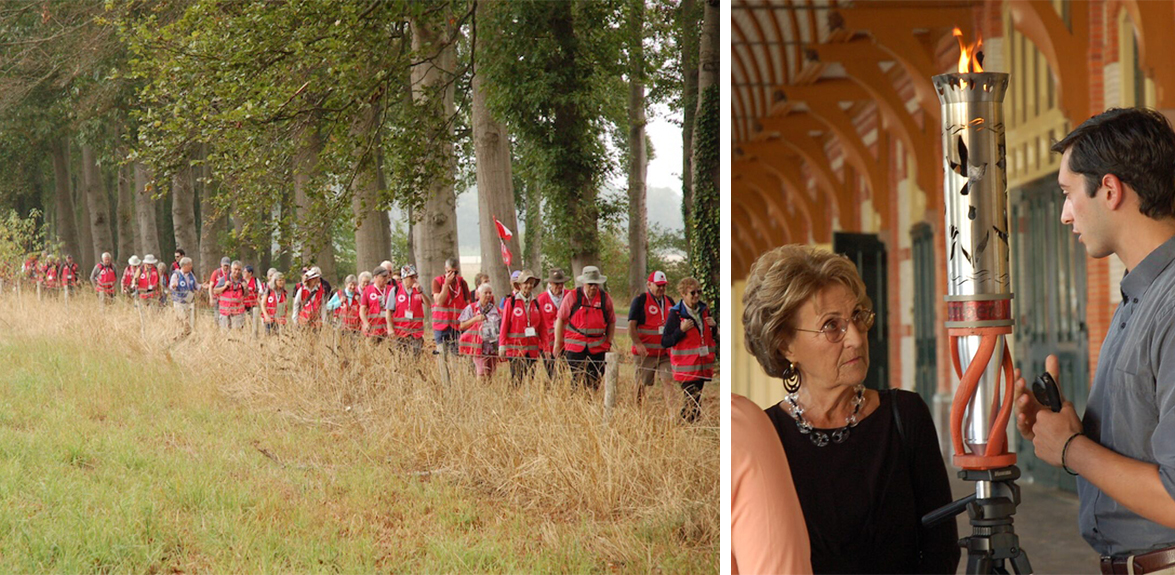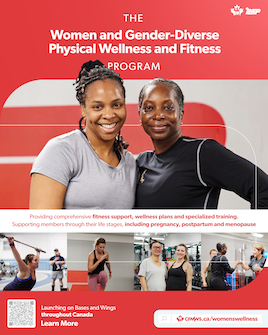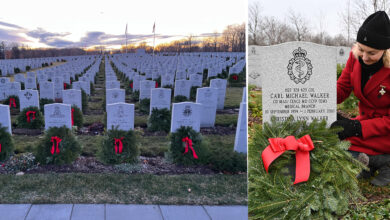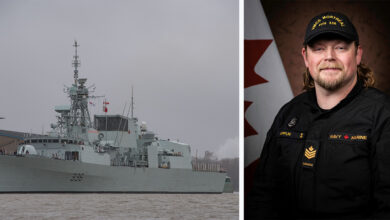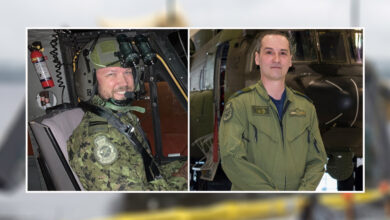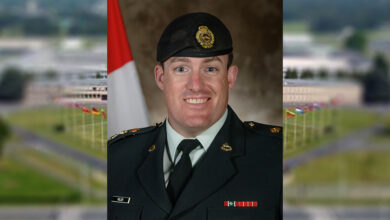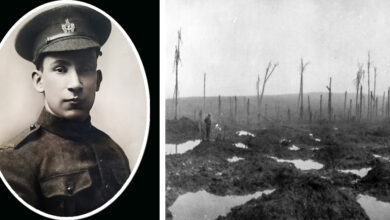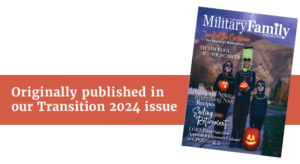
My father didn’t talk about the War. Like most Second World War Veterans, he kept those stories to himself. But I knew this backstory had changed his life, and my mother’s.
There were clues around the house: a special pair of small wooden clogs with a handwritten inscription: With many thanks for that did (sic) the Canadian forces for our Dutch country and our people. 5-5-45; Christmas cards with unusual surnames, like Ingenhousz and van der Meij; my mother’s Longineswatch, “from Doug.” Years later I learned they’d been engaged. Doug was a pilot, shot down and killed over Germany on Valentine’s Day, 1945.
In 1985, my father returned to “Holland” for the 40th Liberation anniversary, and again in 1995 for the 50th. Both times, he and my mother were billeted with a young Dutch couple, Peter and Ans van der Meij, who, over the decades, became part of our family. These anniversaries had a profound effect on the Canadian “Liberators” and inspired many, like my father, to write a memoir about their war experience. My father presented his to our family on his 85th birthday.
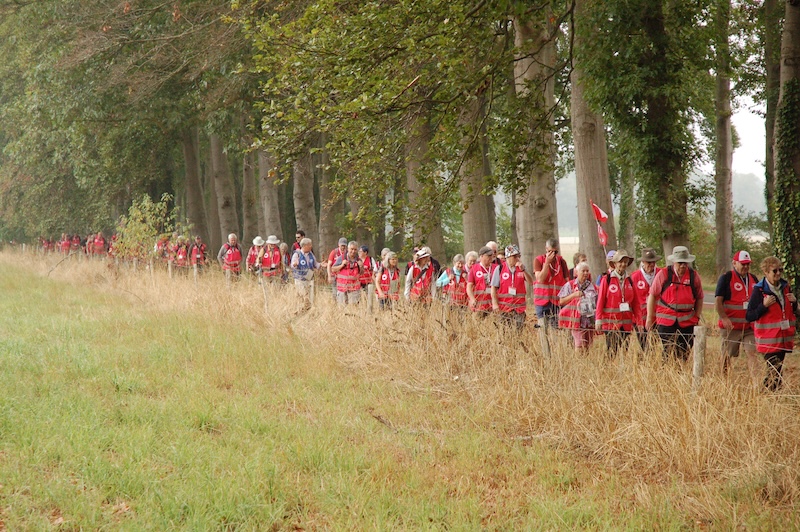
Helped Liberate the Netherlands
In 1941, my father enlisted as a gunner with the Royal Canadian Artillery after his graduation from the University of Toronto and joined Conn Smyth’s “Sportsmen’s Battery” (30th Light Anti-Aircraft). He was 22. Following Pearl Harbour in 1942, he went to British Columbia, and later Alaska, to man anti-aircraft positions there. After Officers’ Training in Brockville and Petawawa, he was shipped to England where he ran a motorcycle school. Later, he was posted to the Canadian 1st Division in Italy where, as an Artillery Officer, he commanded a heavy mortar platoon. When the 1st Division left Italy in June 1944, my father managed the Battery’s troop movement and convoy traffic during the long trek through France and Belgium, then north into the Netherlands. They arrived in the Spring of 1945 and, months later, helped to liberate the Dutch.
Though I’d read my father’s memoir, I didn’t give it much thought until I was climbing Mt. Kilimanjaro for my 50th birthday in 2009. A few weeks before I departed for Tanzania, my father died. He was 89. It wasn’t unexpected; he’d had cancer. But this turn of events was on my mind throughout the climb. As I placed one foot after the other on the mountainside, I reflected on how the Second WorId War had shaped my parents’ lives and, by extension, mine. I began to realize that I wanted, perhaps needed, to know more. There were so many questions I wished I’d asked.
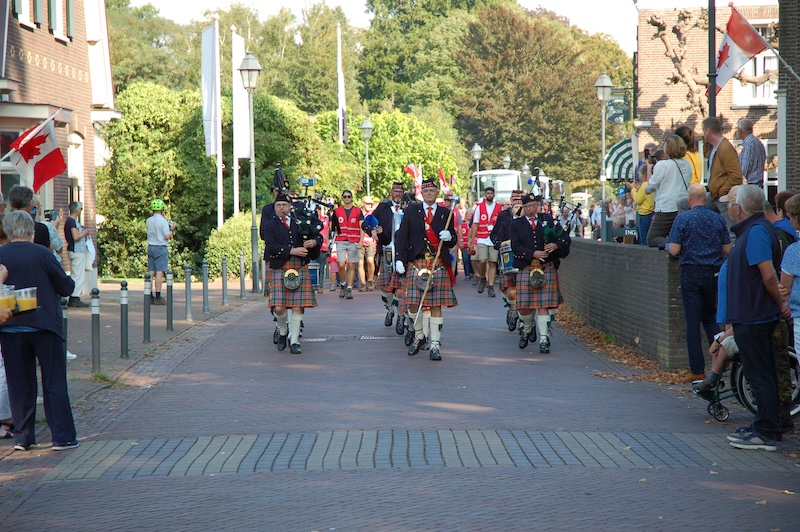
Pilgrimage to the Netherlands
Years later, my long trek on Spain’s Camino de Santiago sparked the idea of a pilgrimage to the Netherlands to better understand my father’s wartime experience. Using his memoir as a guide, I’d walk in his footsteps to mark the Liberation’s 75th anniversary in May 2020. Our family friend, Peter (a retired Dutch military officer), was keen to help so I travelled to the Netherlands to research the route with him. While I was there, I walked in Nijmegen’s Four Days Marches and experienced the incredible outpouring of love for Canadians. I wanted other descendants of Second World War Veterans to experience this Dutch gratitude so I decided to send an invitation, across Canada, to join my pilgrimage.
Sons, daughters, nieces, nephews, grandchildren … hundreds wanted to come. “In my father’s footsteps” became “In OurFathers’ Footsteps” (IOFF) and, before long, 150 Canadians had joined, with a long wait list. Peter amassed an army of Dutch volunteers, researched the routes in detail, and created an amazing itinerary. Then … COVID struck.
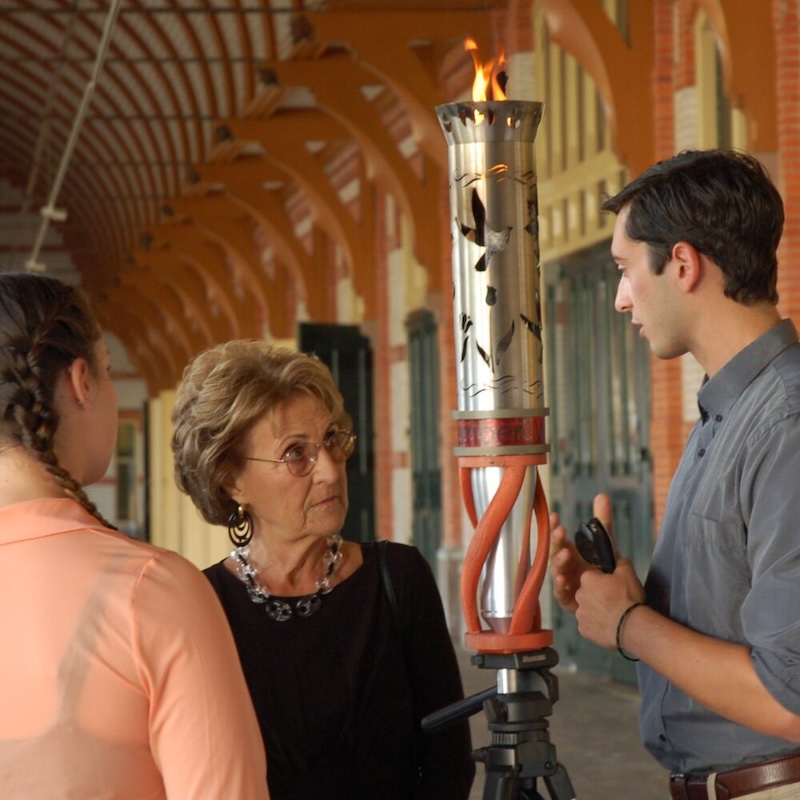
Canadian Remembrance Torch
During the two-and-a-half-year postponement, IOFF (now a not-for-profit) partnered with McMaster University and a team of engineering students designed and built The Canadian Remembrance Torch to lead participants along the paths of the Canadian troops. Air Canada agreed to fly the Torch’s special flame (from the Centennial Flame on Parliament Hill) in a travel lamp to Amsterdam. Finally, in September 2022, The Canadian Remembrance Torch was lit in Megchelen (near the German border) and IOFF’s journey began.
Each day, we followed “Marching Orders” and, for walks, assembled in platoons according to our fathers’ units. Each platoon had a leader, a flag-bearer, and a medic. We followed the troops’ routes—in sunshine, rain, and fog—across farmers’ fields and along forest paths, stopping to hold ceremonies at Canadian monuments. Led by the Torch and a pipe and drum band, we walked through villages liberated by the Canadian troops and received a celebrity-style welcome. At the end of each day, we returned to our “barracks,” a former Second World War Canadian field hospital.
At Groesbeek, Holten, and Bergen op Zoom Canadian War Cemeteries, we wandered among the rows of headstones, mesmerized by the heartfelt epitaphs and youthful ages. One evening, we walked two kilometres in the dark behind the Apeldoorn Pipe and Drum Band, the Torch, and forty candles, to a village where 40 Canadians had been temporarily buried. Under the stars, the village band played our country’s anthems, followed by a beautiful ceremony. At Het Loo Palace, we held a “passing the Torch to the next generation” ceremony with Princess Margriet.
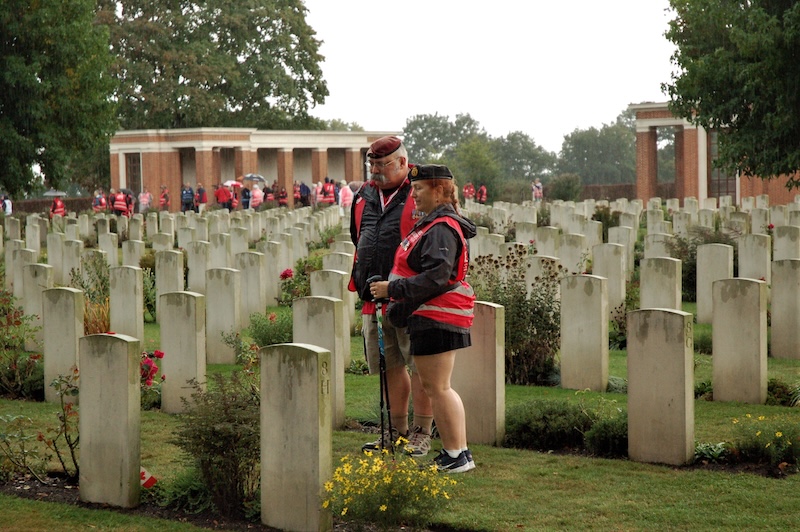
Once, Just Isn’t Enough
For me, the journey’s end was bittersweet. After years of waiting, IOFF had finally happened. Participants’ feedback was off-the-charts. But now, this unique, one-time event was over.
“I know you only do things once,” Peter’s email began. “But when we can bring this much joy to so many Canadians, we have to do it again for the 80th anniversary.”
He’s right. Sometimes once just isn’t enough.
Commemorating the 80th anniversary of the Dutch Liberation and the end of the Second World War, IOFF is a not-for-profit immersive experience that enables the descendants of those who served in the Netherlands to gain a deeper understanding of their relative’s wartime experience. For more information visit here or email here.
Karen Hunter is the Founder and Executive Director of __The Canadian Remembrance Torch, a registered charity dedicated to energizing remembrance and inspiring a culture of gratitude for the sacrifices made for peace and freedom. In Our Fathers’ Footsteps is one of the charity’s initiatives._


